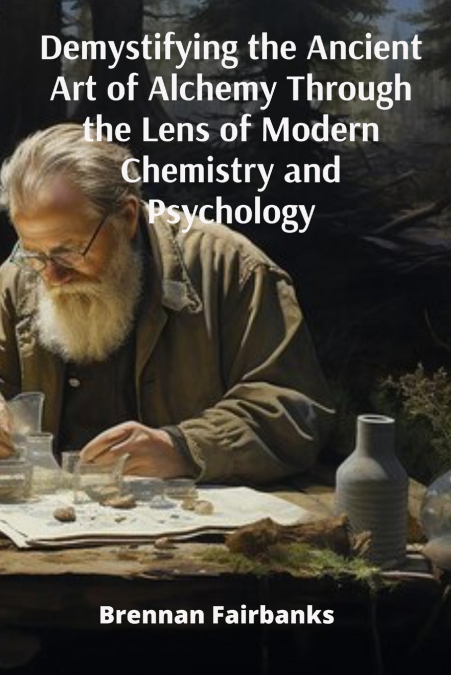
Brennan Fairbanks
Journey into the fascinating intersection of ancient wisdom and modern innovation with Demystifying the Ancient Art of Alchemy Through the Lens of Modern Chemistry and Psychology: A Holistic Approach to Greening the City. This book unravels the enigmatic world of alchemy, bridging the gap between its historical significance and its surprising relevance to contemporary urban challenges, particularly the urgent need for sustainable, green cities.Explore the rich legacy of alchemical thought, tracing its evolution from the laboratories of early practitioners to the foundations of modern chemistry. Discover the hidden connections between alchemical processes and chemical reactions, gaining a newfound appreciation for the scientific advancements built upon ancient foundations. Delve into the psychological dimension of alchemy, uncovering its power as a metaphor for personal and societal transformation.Uncover the fundamental principles that govern the alchemical world, from the classical elements to the transformative processes at the heart of this ancient art. Gain a deeper understanding of the philosophical underpinnings that guided alchemists in their quest for knowledge and transformation. Explore the ethical considerations and safety precautions essential for responsible exploration, emphasizing the importance of mindful practice in both historical and modern contexts.Decipher the cryptic language of the Emerald Tablet, a cornerstone of alchemical wisdom, and unlock its hidden meanings. Explore its various interpretations, seeking practical applications for these ancient teachings in our modern world. Connect the wisdom of the past to the challenges of the present, discovering innovative solutions inspired by age-old principles.Embark on a quest for the legendary Philosopher’s Stone, exploring its symbolic meaning and its connection to the Great Work of alchemical transformation. Understand the concept of spiritual alchemy and its profound implications for personal growth, inner transformation, and psychological development. Examine modern interpretations of this powerful symbol, discovering its enduring relevance in contemporary thought.Transition from the philosophical to the practical, exploring the application of alchemical principles to urban environments. Discover how the wisdom of alchemy can inform sustainable urban design and inspire green innovations. Connect ancient wisdom with modern urban planning, forging a path towards more sustainable and harmonious cityscapes.Cultivate a deeper understanding of the psychological dimensions of urban greening, emphasizing the importance of mindful urban living and community engagement with nature. Explore the principles of eco-psychology, discovering its crucial role in fostering psychologically enriching and sustainable urban environments. Learn how to connect with nature within the city, promoting both individual well-being and collective environmental responsibility.Envision a greener future through the lens of alchemy, embracing sustainable practices and holistic city design. Discover the transformative potential of an alchemical vision to inspire innovation and drive positive change. Embrace the concept of the Green Alchemist as a catalyst for a sustainable future, bridging ancient wisdom with modern solutions. The future of our cities depends on integrating ecological awareness with innovative design, and this book provides a roadmap for achieving that vital balance.Transform your perspective, ignite your imagination, and cultivate a greener future. Alchemize your city!